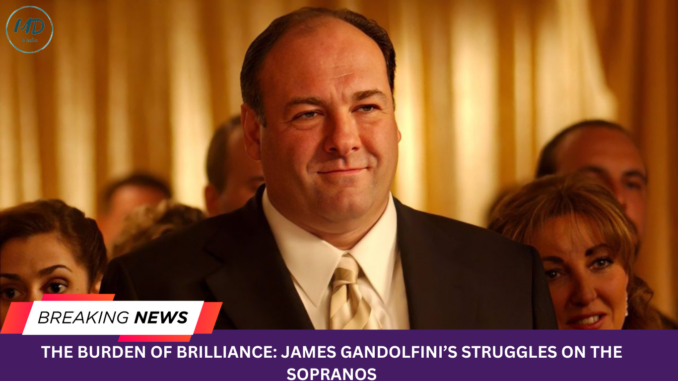
James Gandolfini’s portrayal of Tony Soprano is nothing short of legendary. But behind the scenes, the pressures of being the lead in HBO’s The Sopranos took a serious toll on the actor. In the recent documentary Wise Guy: David Chase and The Sopranos, co-star Steven Van Zandt shares insight into Gandolfini’s tumultuous journey, revealing that the Emmy-winning actor often contemplated quitting the show.
Gandolfini’s Daily Struggles: A Peek Behind the Curtain
Being the face of a groundbreaking series isn’t as glamorous as it sounds. According to Van Zandt, every other day, Gandolfini would declare he was done with the show. “We would go to a bar. We would have the exact same conversation,” Van Zandt recalled, highlighting how the intense demands of the role weighed heavily on his friend.
The Heavy Load of Leading a Hit Series
Gandolfini’s routine was grueling. Filming sometimes kicked off as early as 6 a.m. and could stretch for 14 hours. After long days on set, he was faced with the daunting task of memorizing multiple pages of dialogue for the next day’s shoot. The pressure was relentless.
“They can work you later on a Friday night, so Friday you’re usually there until 2 or 3 in the morning,” Gandolfini said in the documentary, adding, “Sometimes, we’ve seen the sun come up on Saturday.”
This whirlwind schedule took a toll on Gandolfini, both physically and emotionally. He often pushed himself to explore the darker, more painful aspects of his character, leading to a complex relationship with his work.
The Emotional Toll: A Shared Burden
Gandolfini wasn’t just acting; he was diving deep into the emotional landscape of Tony Soprano. Creator David Chase and co-stars like Edie Falco noted that this intense immersion could have negative effects.
“He was incredibly invested in making that character believable,” Falco explained. “Unless you’re really diligent, you’re going to end up taking your work home, and as an actor, that’s not always a great idea.”
The combination of long hours and emotional investment left Gandolfini grappling with the weight of his performance. He often expressed his frustrations about the challenges of the role, yet he remained committed to delivering a portrayal that resonated with audiences.
The Genius Behind the Pain
Despite the struggles, Gandolfini’s efforts produced one of the most memorable performances in television history. His ability to portray a complex character like Tony Soprano earned him three Emmy Awards and left an indelible mark on pop culture.
In Wise Guy, Gandolfini reflects on his initial naivety about the demands of a leading role, admitting that he didn’t realize how challenging it would be until he was knee-deep in it. “I had no clue. I walked in with a big smile on my face,” he said, showcasing the stark contrast between his initial optimism and the harsh reality of his responsibilities.
The Lasting Impact of The Sopranos
Even years after the show concluded, The Sopranos continues to be celebrated as one of the best television series of all time. Gandolfini’s portrayal of Tony Soprano remains a benchmark for excellence in acting, forever changing the landscape of TV drama.
Chase captured Gandolfini’s essence beautifully after his passing in 2023, stating, “He was a genius. Anyone who saw him even in the smallest of his performances knows that.” This acknowledgment serves as a powerful testament to Gandolfini’s impact on the medium.
Remembering a Complex Legacy
While The Sopranos is widely regarded as a masterpiece, it’s essential to recognize the human cost behind its success. Gandolfini’s struggles offer a glimpse into the realities faced by actors who take on challenging roles, highlighting the fine line between art and personal well-being.
Conclusion: The Price of Artistry
James Gandolfini’s experience on The Sopranos illustrates the complex relationship between an actor and their role. The immense pressure to deliver a compelling performance can lead to both greatness and personal turmoil. As we celebrate his legacy, let’s also acknowledge the emotional labor involved in creating art that resonates with audiences.
Understanding this duality enriches our appreciation for performances that seem effortless on screen, reminding us that behind every great character is a dedicated actor who pours their heart into the role.
